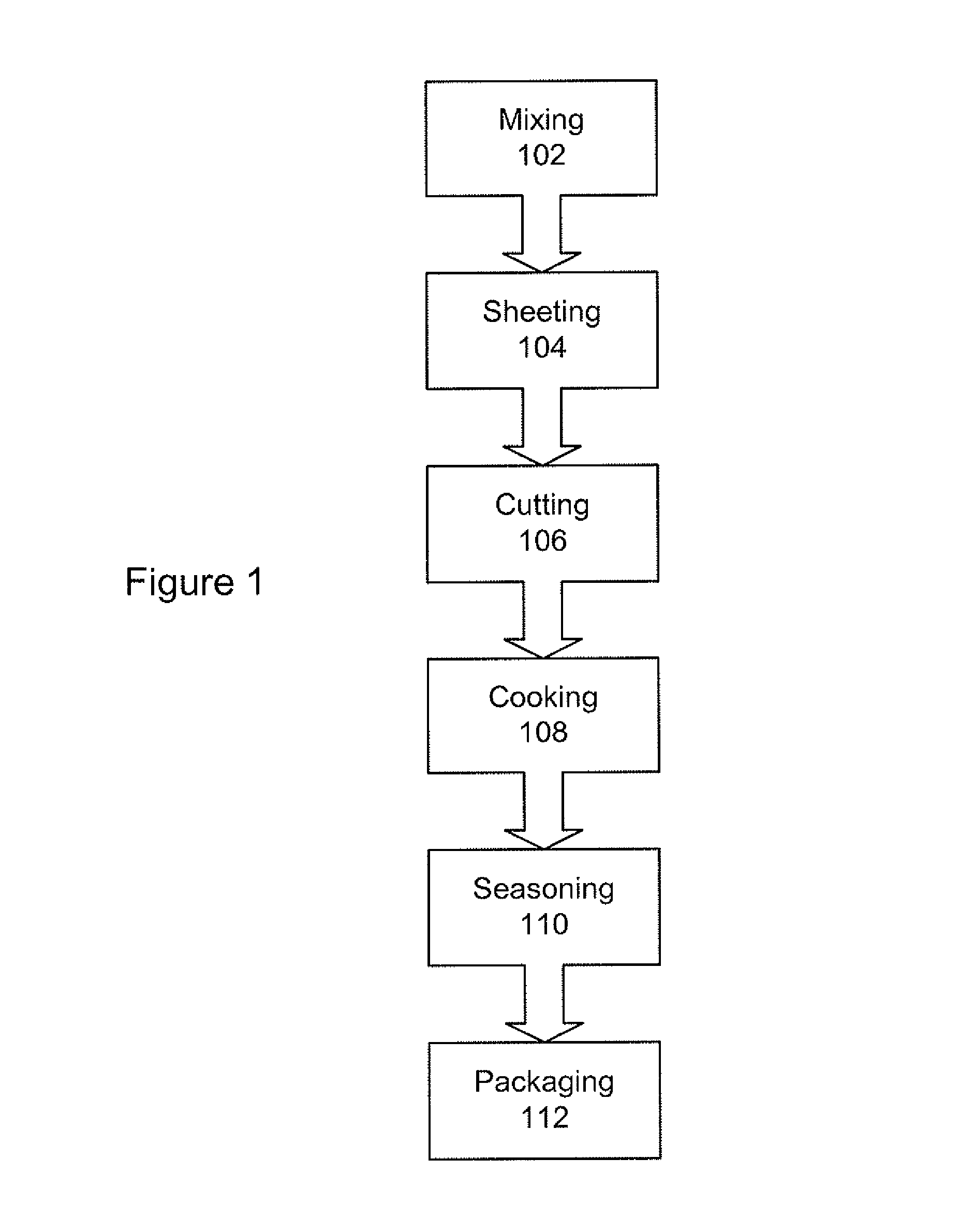Snack chip containing buckwheat hulls
a snack chip and buckwheat technology, applied in the field of snack chips containing buckwheat hulls, can solve the problems of excessive wire accumulation, holes in dough sheets, and prior art unmilled buckwheat hulls are not acceptable, and achieve the effect of not creating excessive build-up
- Summary
- Abstract
- Description
- Claims
- Application Information
AI Technical Summary
Benefits of technology
Problems solved by technology
Method used
Image
Examples
Embodiment Construction
[0024]FIG. 1 illustrates one embodiment of the method for making the snack chip of Applicants' invention. The first step involves mixing 102 the starting ingredients. This mixing step is characterized as a low-sheer mixing in order to avoid damaging the cellular structure of the starting ingredients and is intended to fully blend the starting ingredients. Further, this low-sheer mixing does not add a substantial amount of work to the dough that is produced. This mixing step 102 can comprise one or more individual mixing operations. For example, a first dry-mixing operation can occur where all dry ingredients are thoroughly blended and then combined with water to form a sheetable dough. Alternatively, dry ingredients can be mixed in a separate pre-blend step and then added to a wet ingredient mixture, such as corn meal, for a final mix to produce the desired dough. This dry pre-blend approach is most suitable for adaptation to food lines that produce corn-based chip products. The dou...
PUM
 Login to View More
Login to View More Abstract
Description
Claims
Application Information
 Login to View More
Login to View More - R&D
- Intellectual Property
- Life Sciences
- Materials
- Tech Scout
- Unparalleled Data Quality
- Higher Quality Content
- 60% Fewer Hallucinations
Browse by: Latest US Patents, China's latest patents, Technical Efficacy Thesaurus, Application Domain, Technology Topic, Popular Technical Reports.
© 2025 PatSnap. All rights reserved.Legal|Privacy policy|Modern Slavery Act Transparency Statement|Sitemap|About US| Contact US: help@patsnap.com

